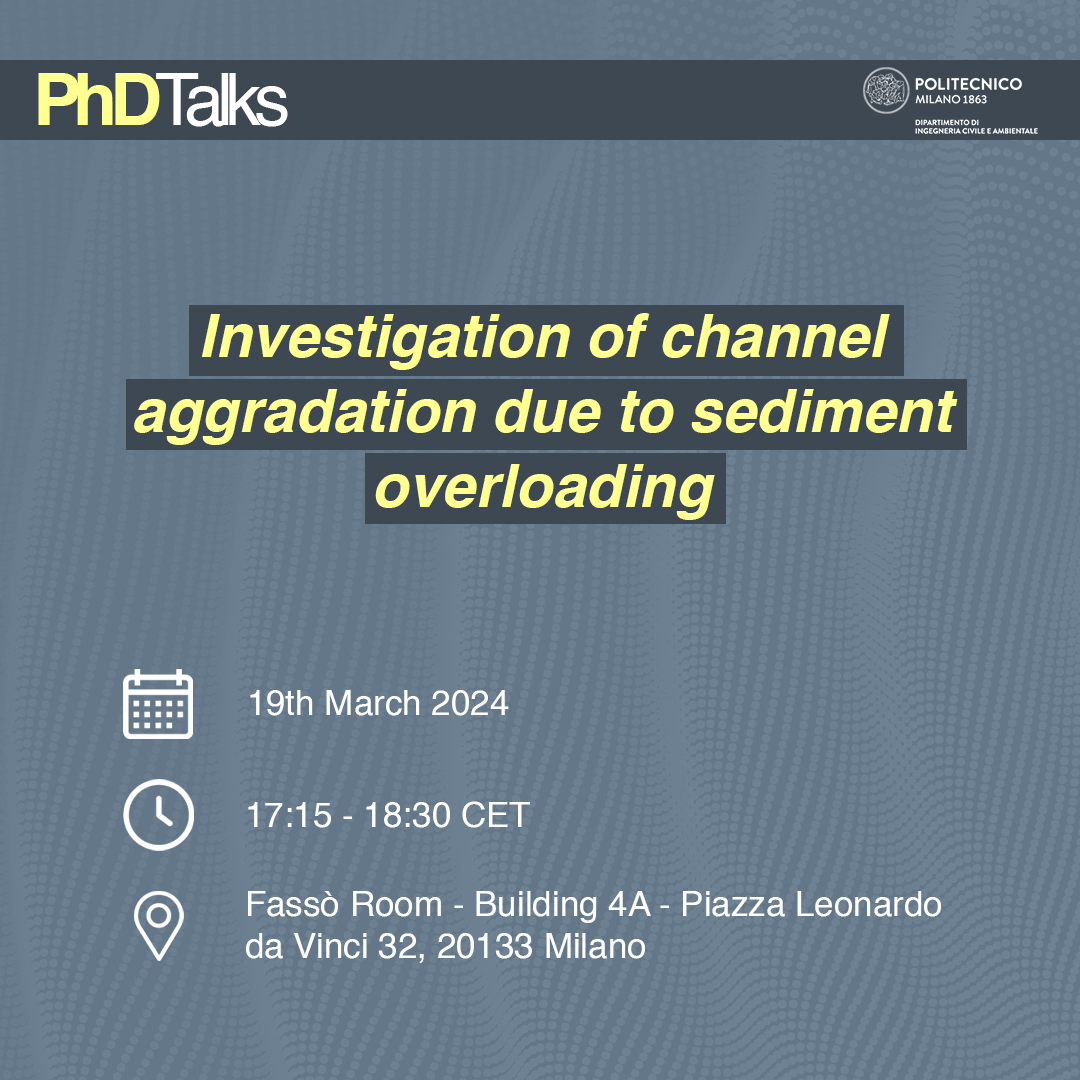
- Questo evento è passato.
PhDTalks | Investigation of channel aggradation due to sediment overloading

Il prossimo appuntamento con la serie di incontri PhDTalks si terrà Martedì 19 marzo nell’aula Fassò (Edificio 4A), dalle 17:15 alle 18:30 CET.
PhDTalks è una serie di seminari e discussioni tra dottorandi. Gli eventi hanno lo scopo di fornire un luogo dove creare un network tra dottorandi ed entrare in contatto con i molteplici progetti sviluppati nel nostro dipartimento.
Lo speaker Hasan Eslami condurrà un seminario dal titolo “Investigation of channel aggradation due to sediment overloading”.
Al termine dell’evento sarà disponibile un piccolo rinfresco finanziato dal dipartimento.
Sarà possibile seguire la conferenza anche online al seguente link.
Abstract
When a channel is overloaded with sediment, an aggradation wave propagates with a certain celerity along the reach. Estimation of the local aggradation depth and of the celerity of propagation are important for hazard assessment and emergency planning. In the current project the aggradation process is studied using a variety of approaches to meet different objectives. First, the celerity of propagation of aggradation wave is investigated by performing an appropriate experimental campaign. Furthermore, considering that morphological processes are modeled by differential equations, the eigenvalues of the latter’s system represent the celerity of propagation of small perturbations. With reference to the laboratory experiments with temporally and spatially detailed measurements, our investigation shows how the celerity of propagation of aggradation wave and the eigenvalues correlate with one another, while their values differ by orders of magnitude. Second, the aggradation process studied experimentally are reproduced with corresponding numerical simulations in one-dimensional conditions, demonstrating that the presence of sediment transport in a flow may result in an increase in the equivalent Manning’s coefficient. Third, the aggradation process is also simulated using a linear diffusion equation. In this context, an analytical solution for the diffusion equation is employed in the performed aggradation experiments, revealing that a constant value for the diffusion coefficient is enough to reproduce the bed evolution within an experiment.
Speaker’s bio
Hasan completed his master’s degree in “Civil Engineering for Risk Mitigation” at Politecnico di Milano in 2021. He is currently pursuing his PhD program (37th cycle) at the Department of Civil and Environmental Engineering at Politecnico di Milano. His research focuses on the ” Investigation of channel aggradation due to sediment overloading.”
In his leisure hours, Hasan enjoys traveling and listening to music.
